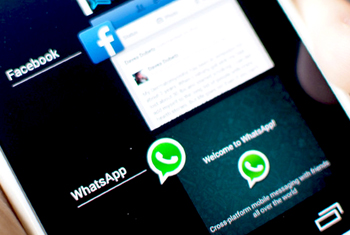Paris, Jun 16: Increasing numbers of readers are paying for online news around the world even if the level of trust in the media, in general, remains very low, according to a report published Tuesday.
Around 20 percent of Americans questioned said they subscribed to an online news provider (up to four points over the previous year) and 42 percent of Norwegians (up eight points), along with 13 percent of the Dutch (up to three points), compared with 10 percent in France and Germany.
But between a third and a half of all news subscriptions go to just a few major media organisations, such as the New York Times, according to the annual Digital News Report by the Reuters Institute.
Some readers, however, are also beginning to take out more than one subscription, paying for a local or specialist title in addition to a national news source, the study's authors said.
But a large proportion of internet users say nothing could convince them to pay for online news, around 40 percent in the United States and 50 percent in Britain.
YouGov conducted the online surveys of 40 countries for the Reuters Institute in January, with 2,000 respondents in each.
Further surveys were carried out in six countries in April to analyse the initial effects of COVID-19.
The health crisis brought a revival of interest in television news -- with the audience rising five percent on average -- establishing itself as the main source of information along with online media.
Conversely, newspaper circulation was hard-hit by coronavirus lockdown measures.
The survey found trust in the news had fallen to its lowest level since the first report in 2012, with just 38 percent saying they trusted most news most of the time.
However, confidence in the news media varied considerably by country, ranging from 56 percent in Finland and Portugal to 23 percent in France and 21 percent in South Korea.
In Hong Kong, which has been hit by months of sometimes violent street protests against an extradition law, trust in the news fell 16 points to 30 percent over the year.
Chile, which has had regular demonstrations against inequality, saw trust in the media fall 15 percent while in Britain, where society has been polarised by issues such as Brexit, it was down 12 points.
 The new button appears on the right side (for left-to-right languages) for some users in the most recent version of the Facebook for Android app, the Geek Time reported.
The new button appears on the right side (for left-to-right languages) for some users in the most recent version of the Facebook for Android app, the Geek Time reported.




Comments
Add new comment